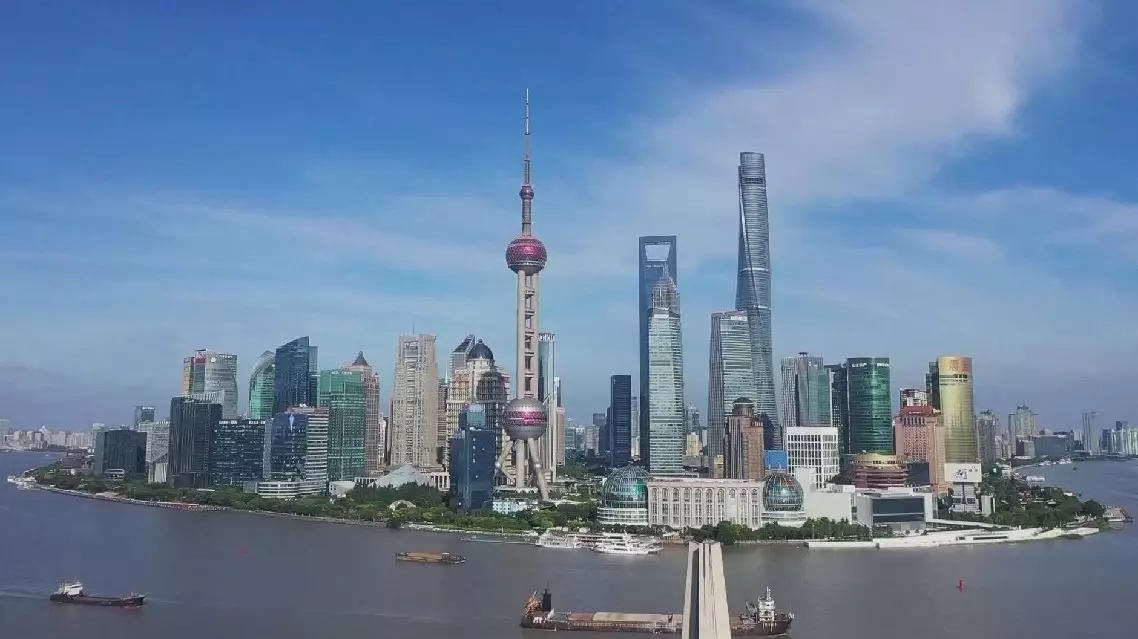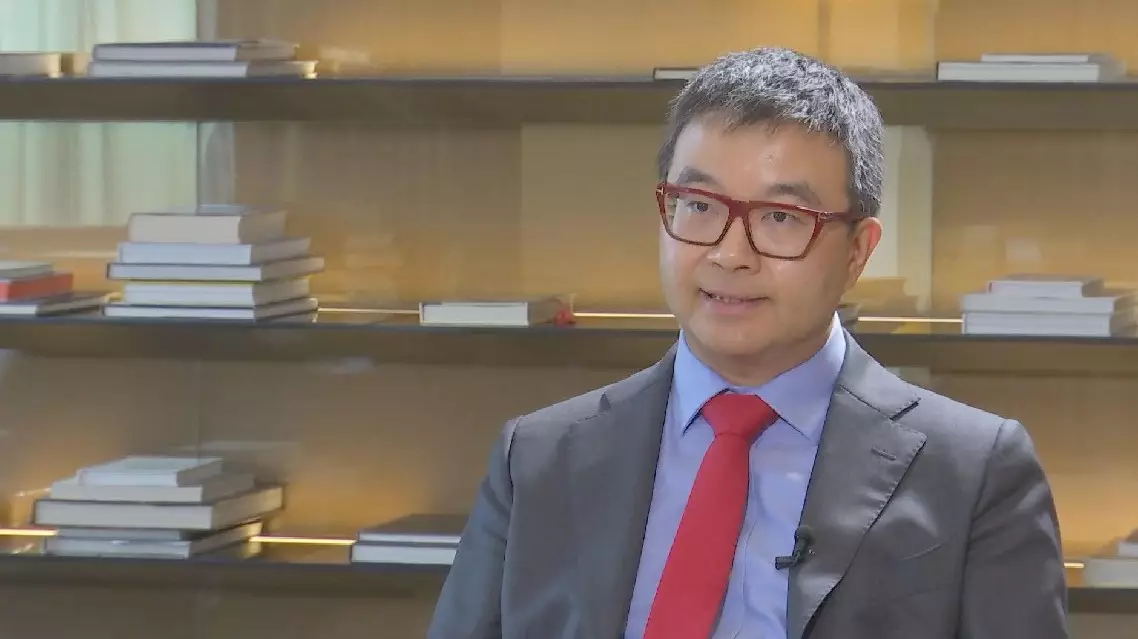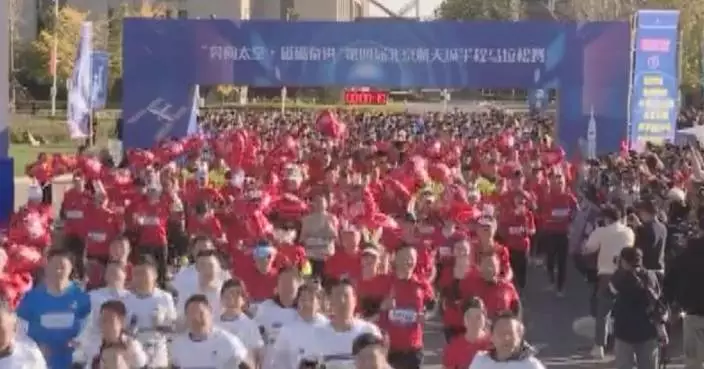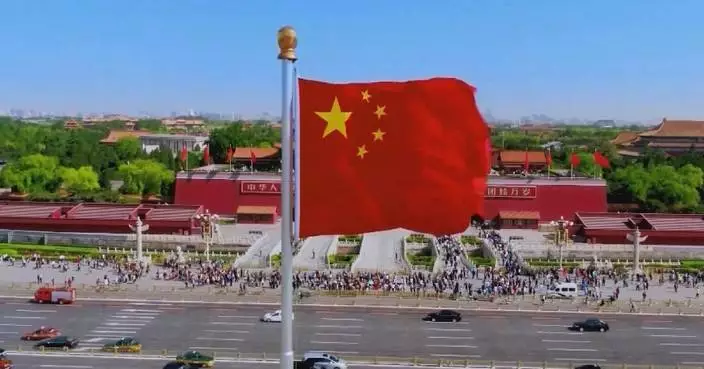International institutions including KraneShares and Morgan Stanley have praised China's robust economic performance in the first three quarters of this year.
China's gross domestic product (GDP) grew 4.8 percent year on year to around 94.97 trillion yuan (about 13.3 trillion U.S. dollars) in the first three quarters of this year, data from the National Bureau of Statistics (NBS) showed Friday.
KraneShares, a U.S.-based asset management firm that focuses on the Chinese market, said that international investors have taken notice as the country's government introduced a series of favorable policies since the end of September.
"We understand the unprecedented action taken by the Chinese government to support the housing market, the stock market as well as the broad cutting of interest rates in China. So as more investors learn about this unprecedented action, we think it'll bring in more dollars," said Brendan Ahern, chief investment officer at KraneShares.
According to NBS data, China's value-added industrial output, an important economic indicator, went up 5.8 percent year on year in the first three quarters of 2024, as robust increases were seen in equipment and high-tech manufacturing industries. The service sector reported continued recovery with a 4.7-percent increase in added value.
"The highlight of the Chinese economy in the third quarter continues to be the manufacturing industry. Exports and foreign trade have been on the rise. Within domestic industrial investment, the performance of new quality productive forces has been quite impressive," said Xing Ziqiang, chief economist with Morgan Stanley China.
Meanwhile, consumption maintained an upward trend during the first three quarters of this year with retail sales of consumer goods up 3.3 percent from a year ago, according to NBS.
A representative from Klynveld Peat Marwick Goerdeler (KPMG), one of the world's top accounting firms, noted that in the first three quarters of this year, the Chinese consumer market, supported by policies, has seen rapid growth in sales of new energy vehicles, household appliances, and other products.
"Various regions are proactively adapting to the changing trend of consumer demand from the supply side, creating new service consumption scenarios with strong driving force and wide influence. They are creating new growth points in consumption, such as catering, entertainment, tourism, to support the current consumption recovery. Moreover, services tailored for the elderly like meal assistance, elderly tourism, home care, and elderly care services are also gradually diversifying, catering to the needs of the elderly population," said Cai Wei, director of the KPMG China Economic Research Institute.

Int'l financial institutions speak highly of China’s economic performance in Q1-3
The Chinese electric vehicle (EV) manufacturers still have viable strategies to rise to the challenges posed by high tariffs imposed by the European Union (EU) on their products, said Peter Lu, a legal expert.
The European Commission, the executive arm of the 27-nation EU, is set to impose countervailing duties of up to 35.3 percent on EVs imported from China, additional to the EU's existing 10 percent tariff on imported cars, following a qualified majority vote on Oct 4.
In a recent exclusive interview with the China Global Television Network (CGTN), Peter Lu, partner and global head of the Chinese practice at the Chicago-based law firm McDermott Will and Emery, emphasized the importance of exploring legal remedies, targeting emerging markets, establishing local production, and rebranding to enhance product quality to navigate current challenges.
Lu noted that the international community remains largely optimistic about China's prospects.
Lu said that in addition to national efforts, the Chinese manufacturers can take proactive steps to mitigate the negative impact of the tariffs. He encouraged them to seek legal solutions and consider markets outside of Europe and the United States.
"Well, as you know, at national level, China will negotiate, will fight about it with the European Union. But with Chinese manufacturing, I think there are a few things they can do. The first one is they should examine the legal remedies to see if it's against the interest, whether there's legal weapon they can use in the European Union or indeed other countries to challenge the government's decision. That's the first thing," he said.
"Second, they should look at the market which [are] outside the European Union or USA. For example, in the Middle East or Africa, Southeast Asia, Latin America and those markets really welcome Chinese products," Lu said.
Lu highlighted two key strategies to retain Western consumers by establishing local production facilities and reimagining Chinese brands to emphasize high quality and advanced technology.
"And thirdly, they should think about for the market which imposes high tariff has the production inside those market. Probably that will get around the tariff issue, but also add local employment. I'm sure it will be welcome by the local country or host country," said the expert.
"Finally, I really think in the long term, in the long run, the Chinese manufacturers should really build global brands for the product, which means associate the product, not the cheap price but high quality and advanced technology, even has a story or inspiration story associated with the brand. As a result, you will have a huge fan base for these products. And those fans are not going to be very sensitive about the price because they love your product. Even countries impose certain tariffs, they're still going to buy it because they love the product," he continued.
He also pointed out that global investors are optimistic about China's long-term prospects, especially following recent policy reforms, including the easing of restrictions on foreign investments in healthcare and the manufacturing sector announced in early September.
"I think those clients, investors, they are looking at the whole package, the reform, the lift restriction of healthcare investment by the Chinese government, the lift restriction of manufacturing sectors. So when they look at both the whole package of reform and the interest rate reform, I think they hold very, very positive views on China in the long term," he said.

Chinese EV manufacturers have viable strategies to meet challenges posed by EU tariffs: legal expert










